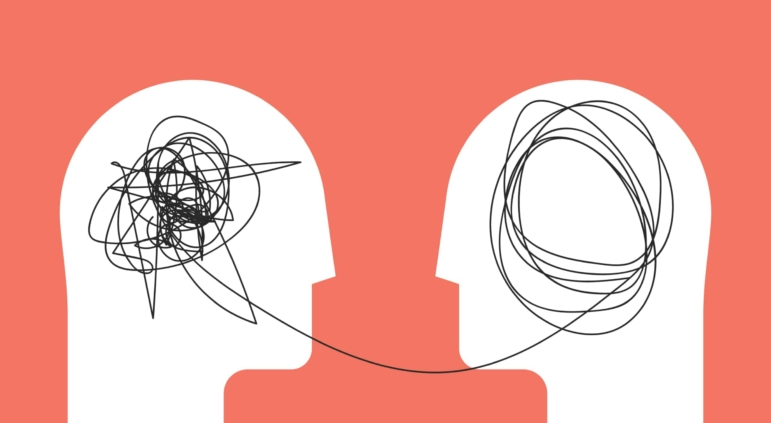To answer the question in the heading – too much empathy can be bad for the empathizer and the person towards whom empathy is extended, according to psychologist Paul Bloom (Are Empathy and Concern Psychologically Distinct? Jordan M, Amir D, Bloom P. Emotion, Sept 2016). I will present the gist of some of his findings and conclusions but wish to note that he has a definition of empathy that does not fully align with the way most mental health professionals use it.
Bloom and his colleagues define empathy as feeling what another person feels or, more accurately, feeling what the empathizer infers another person feels. Bloom and colleagues distinguish empathy from concern, the latter which they define as caring about the welfare of others. In one of their studies, they evaluate subjects on various scales that measure empathy, concern, perspective-taking, and cooperative and altruistic behaviors. Results of factor analyses showed that empathy and concern are separate and distinguishable features. In addition, empathy and concern are associated with different behaviors: “concern for others is a uniquely positive predictor of prosocial action whereas empathy is either not predictive or negatively predictive of prosocial actions.”
Given these findings – if we accept them as being relevant to us – what might be the implications for us as physicians caring for patients? One implication is that “feeling what our patients feel” may not be a necessary attitude to hold when trying to provide the best care for our patients. Rather, what motivates us to provide great care is 1) because it’s our job to do so, and we have dedicated ourselves to our profession, and 2) caring for our patients is inherently motivating to us.
Hmmm. Is this right? I think so, but it takes some explanation.
One issue to clarify concerns a misunderstanding of the nature of empathy. As defined by Bloom, empathy means feeling what another person feels; empathy can lead both to physician burnout and to worse care for patients. This misapprehension of empathy is not a theoretical problem; in my years of training residents, I have seen doctors become very drained caring for patients. Among the many reasons for this outcome was their tendency to “feel what the patient feels.” This is a hard task to do 10, 20, or 30 times a day. And why would some residents go into patient interactions trying to feel what their patients feel? I think it’s because they thought that this approach was what it meant to be a good psychiatrist or physician. The thinking went that if you weren’t empathic, as defined so far, you weren’t doing a good job.
My solution is not to jettison empathy but to define it differently. Let’s define empathy as “understanding what another person feels.” “Understanding,” however, does not necessitate “feeling” the other person’s emotions. After all, most of the patients who receive care from a psychiatrist are moderately to severely miserable. How long could a psychiatrist go on accessing or generating states of misery in their minds before burning out or walking away from the profession? For many, probably not that long.
What, then, does “understanding” another person entail? It entails recognition of the other person’s emotions, for example, sadness, anger, hopelessness, fear, vulnerability, sense of betrayal, regret, self-loathing, and disgust. It also entails recognizing the contributors to these emotions, and their cognitive and behavioral consequences. It means recognizing the maladaptive cognitive and behavioral strategies that a person deploys to deal with their state of misery that often serves to make the misery worse.
Achieving such an understanding of the contents of another person’s mind and leading them to a better state requires several attitudes and skills on the physician’s part. First is the need to care enough to undertake this exploration. Second is the ability to take another person’s perspective and understand the possible connections and implications of their situation to other situations, including future ones. Third is the need to non-judgmentally accept the patient as they are. Fourth is the need to communicate your understanding of their suffering and its sources to the patient. Fifth is the need to guide them, based on what you learned about them and their way of speaking about and conceptualizing their problems, into undertaking changes in what they do and how they do it.
So, yes, I think it important to “enter a patient’s world fearlessly,” as is my motto, but not to generate the same feelings they are feeling. I don’t need to feel their feelings to recognize them and to seek their sources, consequences, and other implications. I remind myself that the last thing the depressed, anxious, or overwhelmed patient needs is a depressed, anxious, or overwhelmed psychiatrist.
Until next time,
Dr. Jack
LanguageBrief
“You think your pain and your heartbreak are unprecedented in the history of the world, but then you read. It was books that taught me that the things that tormented me most were the very things that connected me with all the people who were alive, who had ever been alive.” – James Baldwin
“The most beautiful people we have known are those who have known defeat, known suffering, known struggle, known loss, and have found their way out of the depths. These persons have an appreciation, a sensitivity, and an understanding of life that fills them with compassion, gentleness, and a deep loving concern. Beautiful people do not just happen.” – Elisabeth Kubler-Ross







Leave A Comment